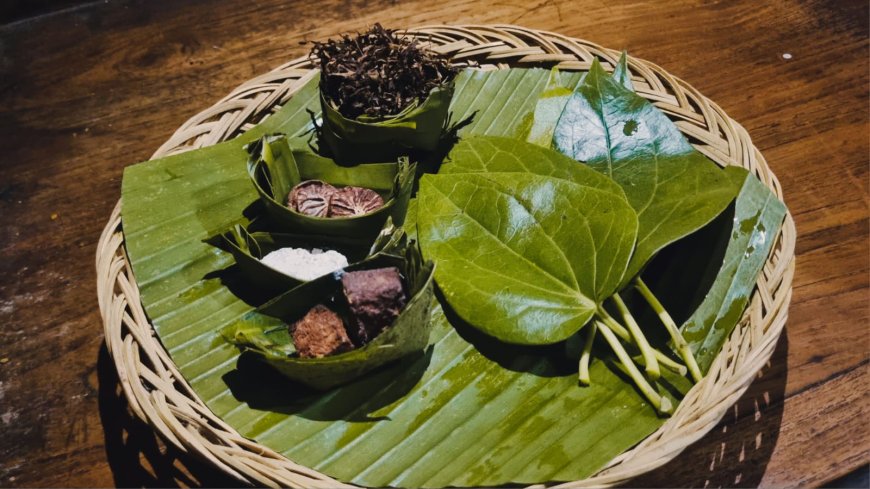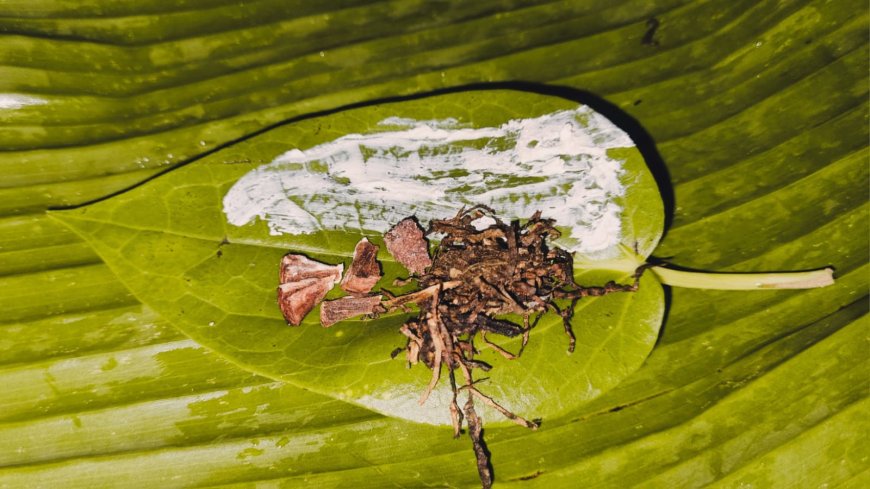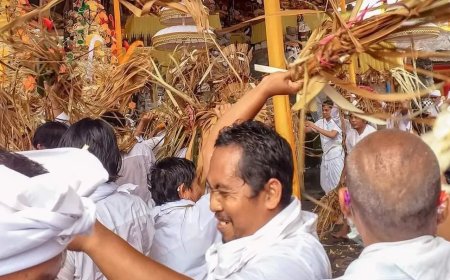Getting to Know the Nginang Tradition: Balinese Traditions that Contain Historical and Health Values
The nginang tradition is one of the Balinese cultures that is rich in spiritual and health values. The habit of chewing betel nut is inherited from generation to generation, symbolizing respect for the gods, a symbol of unity in marriage, as well as spiritual energy that is believed to protect against negativity and maintain dental and oral health.

The nginang tradition is one of the Balinese cultures that is rich in spiritual and health values. The habit of chewing betel nut is inherited from generation to generation , symbolizing respect for the gods, a symbol of unity in marriage, as well as spiritual energy that is believed to protect against negativity and maintain dental and oral health. Nginang is a tradition of chewing a mixture of betel leaves, areca nuts, lime, gambier, and tobacco. This custom symbolizes respect for the Tri Murti Goddess (Brahma, Vishnu, Shiva) which is represented through the colors of its materials, namely red, green, and white. Red comes from areca nuts, green from betel leaves and white from lime.

Nginang Ingredients (Source: Personal Collection)
Nginang has a deep and important meaning in the life of the Balinese people. Apart from being a form of respect for the gods, nginang is also a symbol of love unity in marriage, where the heat of the areca nut and the cold of the betel leaf symbolize harmony in the relationship between husband and wife. In the health sector, ingredients such as betel leaves, gambier, and lime have antiseptic properties that help maintain healthy teeth and mouth, as well as prevent infections and bad breath, and areca nut is believed to improve tooth strength. In addition, nginang is believed to have spiritual energy that protects against negativity. This tradition is also used to increase energy both in daily life, including in business and trade. Chewing betel nut is believed to increase body energy, refresh the mind, and strengthen focus. The pemangku and sulinggih, as spiritual leaders in Balinese society, perform nginang not only as a treat, but also as part of rituals and worship. Nginang is considered important in creating spiritual balance and harmony. By performing nginang, pemangku and sulinggih can maintain purity and positive energy around them, which is very important in the implementation of various traditional and religious ceremonies.
The nginang process begins by preparing ingredients such as betel leaves, areca nut, lime, gambier, and tobacco. The betel leaves are folded neatly, then pieces of areca nut are added, a little lime, and gambier according to taste. Once all the ingredients are combined, the mixture is put in the mouth between the teeth and cheeks, and chewed slowly until all the flavors and benefits are felt. After that, the tobacco clump is rubbed against the surface of the teeth.

Nginang (Source: Personal Collection)
Betel leaves are believed to have cleansing energy that expels negative energy from a place or individual. In Balinese tradition, betel leaf or in Balinese terms, namely don bas" is often used in various religious ceremonies to purify an altar, house, or even a person's body. The use of betel leaves is not only done in the form of nginang, but also often used as a worship ceremony. Betel nuts are considered a vital source of energy and strength in the nginang tradition. Betel nut provides a warm and slightly spicy sensation when chewed, which is believed to be able to increase the body's energy and improve focus. Lime has properties as an adhesive and binder of positive energy. In a spiritual context, chalk or in Balinese terms pamor is often mixed in various components of traditional ceremonies to increase the effectiveness of rituals. Its whitening properties also often symbolize cleanliness and purity.
The nginang tradition is not just a habit of chewing betel, but a cultural heritage that contains historical, health, and spiritual values. Through this culture, the Balinese people not only maintain dental and oral health, but also maintain harmony in spiritual life.





























































